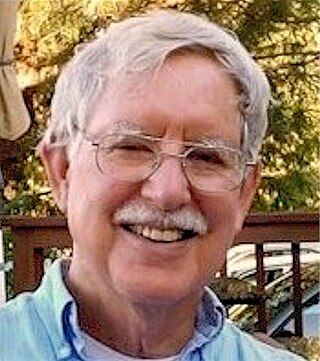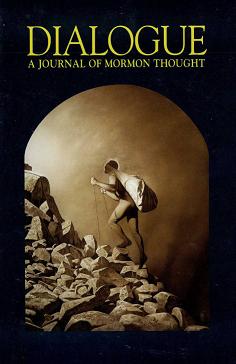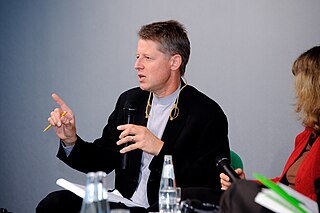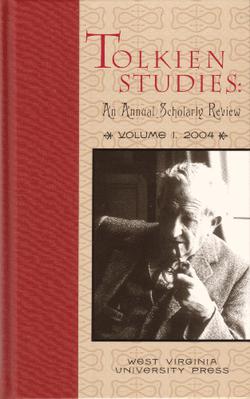
Kenneth Ring is an American psychologist, born in San Francisco, California. He is the co-founder and past president of the International Association for Near-Death Studies (IANDS) and is the founding editor of the Journal of Near-Death Studies. He currently lives in Kentfield, California.

Science, also widely referred to as Science Magazine, is the peer-reviewed academic journal of the American Association for the Advancement of Science (AAAS) and one of the world's top academic journals. It was first published in 1880, is currently circulated weekly and has a subscriber base of around 130,000. Because institutional subscriptions and online access serve a larger audience, its estimated readership is over 400,000 people.

Academic publishing is the subfield of publishing which distributes academic research and scholarship. Most academic work is published in academic journal articles, books or thesis. The part of academic written output that is not formally published but merely printed up or posted on the Internet is often called "grey literature". Most scientific and scholarly journals, and many academic and scholarly books, though not all, are based on some form of peer review or editorial refereeing to qualify texts for publication. Peer review quality and selectivity standards vary greatly from journal to journal, publisher to publisher, and field to field.
Near-death studies is a field of psychology and psychiatry that studies the physiology, phenomenology and after-effects of the near-death experience (NDE). The field was originally associated with a distinct group of North American researchers that followed up on the initial work of Raymond Moody, and who later established the International Association for Near-Death Studies (IANDS) and the Journal of Near-Death Studies. Since then the field has expanded, and now includes contributions from a wide range of researchers and commentators worldwide. Research on near-death experiences is mainly limited to the disciplines of medicine, psychology and psychiatry.

Mankind Quarterly is a journal that has been described as a "cornerstone of the scientific racism establishment", a "white supremacist journal", and "a pseudo-scholarly outlet for promoting racial inequality". It covers physical and cultural anthropology, including human evolution, intelligence, ethnography, linguistics, mythology, archaeology, and biology. It is published by the Ulster Institute for Social Research, which was presided over by Richard Lynn until his death in 2023.
The International Association for Near-Death Studies (IANDS) is a nonprofit organization based in Durham, North Carolina in the United States, associated with near-death studies. The Association was founded in the US in 1981, in order to study and provide information on the phenomena of the near death experience (NDE). Today it has grown into an international organization, which includes a network of more than 50 local interest groups, and approximately 1,200 members worldwide. Local chapters, and support groups, are established in major U.S cities. IANDS also supports and assists near-death experiencers (NDErs) and people close to them. In one of its publications the organization has formulated its vision as one of building "global understanding of near-death and near-death-like experiences through research, education, and support".

Dialogue: A Journal of Mormon Thought is an independent quarterly journal that addresses a wide range of issues on Mormonism and the Latter Day Saint Movement.
Charles Bruce Greyson is Professor Emeritus of Psychiatry and Neurobehavioral Sciences at the University of Virginia. He is author of After: A Doctor Explores What Near-Death Experiences Reveal about Life and Beyond (2021), co-author of Irreducible Mind (2007) and co-editor of The Handbook of Near-Death Experiences (2009). Greyson has written many journal articles and has given media interviews on the subject of near death experiences.

Andrew Maitland Moravcsik is professor of politics and international affairs, director of the Liechtenstein Institute on Self-Determination, and founding director of both the European Union Program and the International Relations Faculty Colloquium at Princeton University. He holds a lifetime appointment as distinguished affiliated professor at the Technische Universität München, in Munich, Germany, where he is affiliated with its Hochschule für Politik.
Douglas Allen Anderson is an American writer and editor on the subjects of fantasy and medieval literature, specializing in textual analysis of the works of J. R. R. Tolkien. He is a winner of the Mythopoeic Award for scholarship.

Tolkien Studies: An Annual Scholarly Review is an academic journal founded in 2004 publishing papers on the works of J. R. R. Tolkien. The journal's founding editors are Douglas A. Anderson, Michael D. C. Drout, and Verlyn Flieger, and the current editors are Michael D. C. Drout, Verlyn Flieger, and David Bratman. It states that it is the first scholarly journal published by an academic press in the area of Tolkien research.
The Chicago Journal of International Law is a semiannual, student-edited law review published by the University of Chicago Law School since spring 2000. The journal publishes articles covering international law, international relations, and related policy issues. Its articles are often interdisciplinary in focus, and the journal's format allows it to examine international legal issues in a broader cultural and political context. The Chicago Journal of International Law is one of the three student-edited law journals published at the University of Chicago Law School.
Elijah Anderson is an American sociologist. He is the Sterling Professor of Sociology and of African American Studies at Yale University, where he teaches and directs the Urban Ethnography Project. Anderson is one of the nation’s leading urban ethnographers and cultural theorists. Anderson is known most notably for his book, Code of the Street: Decency, Violence, and the Moral Life of the Inner City (1999).
A near-death experience (NDE) is a profound personal experience associated with death or impending death which researchers describe as having similar characteristics. When positive, which the great majority are, such experiences may encompass a variety of sensations including detachment from the body, feelings of levitation, total serenity, security, warmth, joy, the experience of absolute dissolution, review of major life events, the presence of a light, and seeing dead relatives. When negative, such experiences may include sensations of anguish, distress, a void, devastation, vast emptiness, seeing hellish places and "the devil".
Skandinaven was a Norwegian language newspaper published in Chicago, Illinois from 1866 until 1941.

The Jon M. Huntsman School of Business is located at Utah State University in Logan, Utah.

Irreducible Mind: Toward a Psychology for the 21st Century is a 2007 psychological book by Edward Francis Kelly, Emily Williams Kelly, Adam Crabtree, Alan Gauld, Michael Grosso, and Bruce Greyson. It attempts to bridge contemporary cognitive psychology and mainstream neuroscience with "rogue phenomena", which the authors argue exist in near-death experiences, psychophysiological influence, automatism, memory, genius, and mystical states.
William Breit (1933–2011) was an American economist, mystery novelist, and professional comedian. Breit was born in New Orleans. He received his undergraduate and master's degrees from the University of Texas and his Ph.D. from Michigan State University in 1961. He was an Assistant and associate professor of economics at Louisiana State University (1961–1965) On the recommendation of Milton Friedman he was interviewed and hired at the University of Virginia where he was Associate Professor and Professor of Economics (19651983). He returned to his San Antonio as the E.M. Stevens Distinguished Professor of Economics at Trinity University in 1983 and retired as the Vernon F. Taylor Distinguished Professor Emeritus in 2002. He is considered an expert in the history of economic thought and anti-trust economics. He established the Nobel Laureate Lecture Series at Trinity University and is most notable as a mystery novelist where their murder mysteries are solved by applying basic economic principles.
Peter Brooke Cadogan Fenwick is a neuropsychiatrist and neurophysiologist who is known for his studies of epilepsy and end-of-life phenomena.

Studies in Canadian Literature/Études en littérature canadienne (SCL/ÉLC) is a bilingual journal of peer-reviewed literary criticism published out of the University of New Brunswick.









